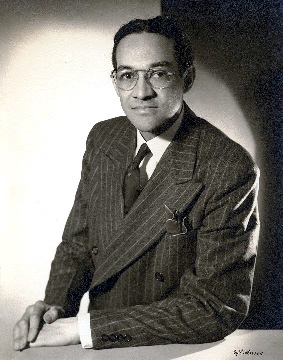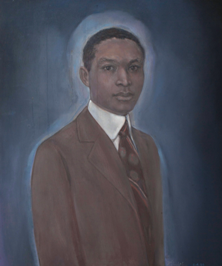Related Research Articles

Sadie Tanner Mossell Alexander was a pioneering Black professional and civil rights activist of the early-to-mid-20th century. In 1921, Mossell Alexander was the second African-American woman to receive a Ph.D. and the first one to receive one in economics in the United States. In 1927, she was first Black woman to receive a law degree from the University of Pennsylvania Law School and went on to become the first Black woman to practice law in the state. She was also the first national president of Delta Sigma Theta sorority, serving from 1919 to 1923.

Mary Church Terrell was one of the first African-American women to earn a college degree, and became known as a national activist for civil rights and suffrage. She taught in the Latin Department at the M Street School —the first African American public high school in the nation—in Washington, DC. In 1895, she was the first African-American woman in the United States to be appointed to the school board of a major city, serving in the District of Columbia until 1906. Terrell was a charter member of the National Association for the Advancement of Colored People (1909) and the Colored Women's League of Washington (1892). She helped found the National Association of Colored Women (1896) and served as its first national president, and she was a founding member of the National Association of College Women (1923).

Pixley ka Isaka Seme was a South African lawyer and a founder and President of the African National Congress.

The National Bar Association (NBA) was founded in 1925 and is the nation's oldest and largest national network of predominantly African-American attorneys and judges. It represents the interests of approximately 67,000 lawyers, judges, law professors, and law students.
African Americans are an ethnic group in the United States. The first achievements by African Americans in diverse fields have historically marked footholds, often leading to more widespread cultural change. The shorthand phrase for this is "breaking the color barrier".
The National Negro Business League (NNBL) was an American organization founded in Boston in 1900 by Booker T. Washington to promote the interests of African-American businesses. The mission and main goal of the National Negro Business League was "to promote the commercial and financial development of the Negro." It was recognized as "composed of negro men and women who have achieved success along business lines". It grew rapidly with 320 chapters in 1905 and more than 600 chapters in 34 states in 1915.

Mahala Ashley Dickerson was an American lawyer and civil rights advocate for women and minorities. In 1948 she became the first African American female attorney admitted to the Alabama State Bar; in 1951 she was the second African American woman admitted to the Indiana bar; and in 1959 she was Alaska's first African American attorney. In 1983 Dickerson was the first African American to be elected president of the National Association of Women Lawyers. Her long legal career also helped to pave the way for other women attorneys. In 1995 the American Bar Association named her a Margaret Brent Women Lawyers of Achievement honoree.

Adah Belle Samuels Thoms was an African American nurse who cofounded the National Association of Colored Graduate Nurses, was acting director of the Lincoln School for Nurses, and fought for African Americans to serve as American Red Cross nurses during World War I and eventually as U.S. Army Nurse Corps nurses starting with the flu epidemic in December 1918. She was among the first nurses inducted into the American Nurses Association Hall of Fame when it was established in 1976.
Gertrude Elzora Durden Rush was the first African-American female lawyer in Iowa, admitted to the Iowa bar in 1918. She helped found the National Bar Association in 1925.

William Henry Lewis was an African-American pioneer in athletics, law and politics. Born in Virginia to freedmen, he graduated from Amherst College in Massachusetts, where he had been one of the first African-American college football players. After going to Harvard Law School and continuing to play football, Lewis was the first African American in the sport to be selected as an All-American.
Chief Christopher Alexander Sapara Williams was the first indigenous Nigerian lawyer, called to the English bar on 17 November 1879. In addition to his legal practice, he came to play an influential role in the politics of Nigeria during the colonial era. He held the chieftaincy title of the Lodifi of Ilesha.

Raymond Pace Alexander was an American civil rights leader, lawyer, politician, and the first African American judge appointed to the Pennsylvania Court of Common Pleas. Born and raised in Philadelphia, he became the first black graduate of the Wharton School of Business in 1920. After graduation from Harvard Law School in 1923, Alexander became one of the leading civil rights attorneys in Philadelphia. He gained prominence as a black lawyer willing to fight for equal rights in the Berwyn desegregation case and represented black defendants in other high-profile cases, including the Trenton Six, a group of black men arrested for murder in Trenton, New Jersey.

Charles Henry James Taylor (1857–1899), was an American journalist, editor, lawyer, orator, and political organizer. An early supporter of Democratic Grover Cleveland, he was appointed Minister to Liberia in Cleveland's first presidential term.
Frank Roscoe Beckwith was a lawyer, civil rights activist, and politician from Indianapolis, Indiana. In 1960 he became the first African American to run as a candidate for President of the United States in a major-party primary.
The National Association of Women Lawyers is a voluntary organization founded in 1899 and based in the United States. Its aim is to promote women lawyers and women's legal rights.
The National Association of Colored Graduate Nurses was a professional organization for African American nurses founded in 1908.

Homer Gilliam Phillips was an American lawyer from Sedalia, Missouri, who later moved to St. Louis. He is notable for being an African-American Republican political figure, and a prominent advocate for civil rights. He was a co-founder of Citizen's Liberty League, a political organization in Missouri to advance the interests of African Americans in the Republican Party. In 1928, he was the president of the St. Louis chapter of the National Bar Association. In 1931, at 51 years old, Phillips was gunned down in St. Louis in an alleged dispute over legal fees owed to him. After his death, a hospital in St. Louis was named in his honor, Homer G. Phillips Hospital.
The History of the American legal profession covers the work, training, and professional activities of lawyers from the colonial era to the present. Lawyers grew increasingly powerful in the colonial era as experts in the English common law, which was adopted by the colonies. By the 21st century, over one million practitioners in the United States held law degrees, and many others served the legal system as justices of the peace, paralegals, marshalls, and other aides.
Bertha Louise Douglass was an American civil rights activist and lawyer who was the second African American woman admitted to the Virginia State Bar.
References
- 1 2 Rise 2013, p. 354.
- 1 2 3 Hornsby 2008, p. 316.
- 1 2 "News from the Profession". Law Notes. Vol. 15. 1912. p. 132.
- ↑ Smith 1999, p. 593.
- ↑ Whitaker, Robert (2009). On the Laps of Gods: The Red Summer of 1919 and the Struggle for Justice that Remade a Nation. p. 191. ISBN 978-0-307-33983-6.
- ↑ King 2009, p. 159.
- ↑ Bradley, David; Fishkin, Shelley Fisher, eds. (1998). "National Bar Association". The Encyclopedia of Civil Rights in America. Vol. 3. p. 635. ISBN 0-7656-8000-9.
- 1 2 Canton 2010, p. 28.
- ↑ Moliterno, James E. (2003). Ethics of the Lawyer's Work. p. 88. ISBN 978-0-314-14438-6.
- ↑ Smith 1999, p. 344.
- ↑ Smith 1999, pp. 594–595.